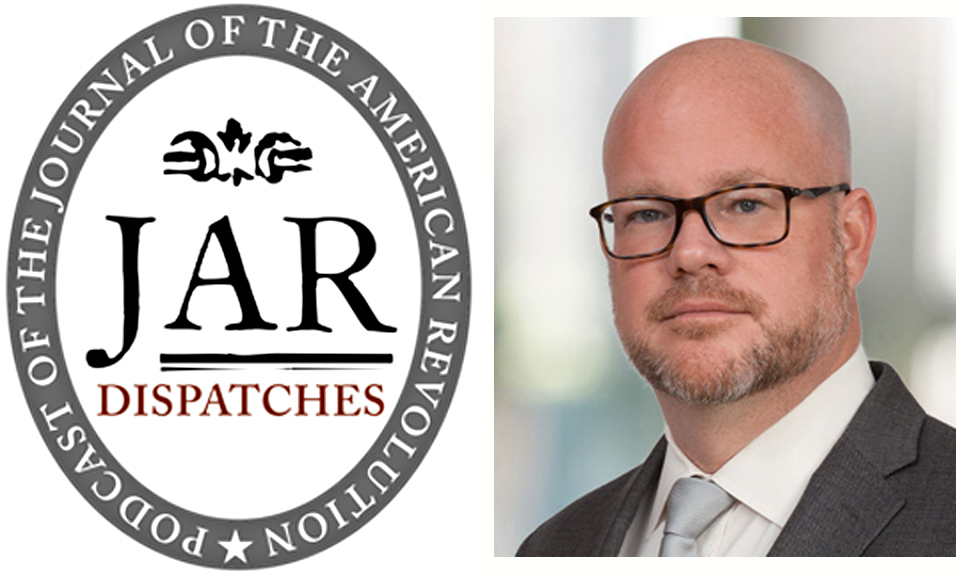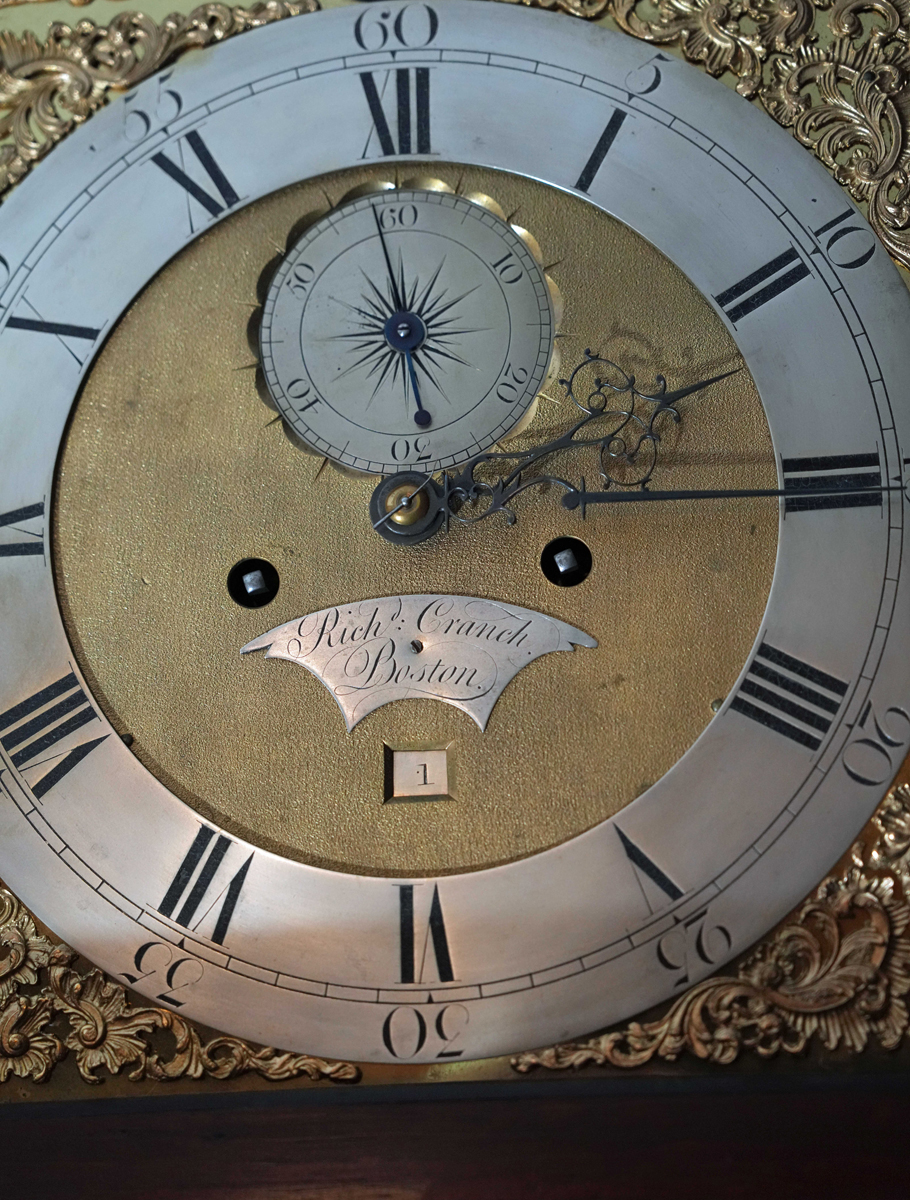The Consequences of Loyalism: Essays in Honor of Robert M. Calhoon edited by Rebecca Brannon and Joseph S. Moore (University of South Carolina Press, 2019)
Anyone who has ever picked up a book concerning Loyalism in the American Revolutionary era has likely encountered the work of Robert M. “Bob” Calhoon. A renowned academic, author, and advisor with a reputation for unwavering generosity and cognizance toward others, Calhoon has long been the predominant figure in Loyalist historiography. For decades, Calhoon has aided and advanced Loyalist scholarship by utilizing cross-disciplinary methodologies to evidence the diverse aims, incentives, and experiences of these early Americans characters. In a display of reverence for Bob Calhoon and his immeasurable contributions to the field of Loyalist studies, Rebecca Brannon and Joseph Moore have compiled The Consequences of Loyalism, which unites scholars from various stages of their careers who were impacted personally and professionally by the man and his work.
Divided into two sections, The Consequences of Loyalism features fifteen essays which utilize the theoretical foundation provided by Calhoon to reconsider Loyalist interpretations and suggest new methods for analyzing and explaining Loyalist identities. The first half of this book is entitled “Perceptions” and focuses on Calhoon’s attention to Loyalist ideologies, while the second portion, “Moderation,” is dedicated to Calhoon’s fascination with historic moderates who acted as mediators in the aftermath of the Revolutionary War. From early career researchers and tenured professors to curators and public historians, this festschrift incorporates a variety of individuals with an interest in Loyalist experiences in Nova Scotia, New York, and the South Carolina backcountry. Concluding with a heartfelt afterword by Warren Hofstra, readers are provided with a biographical overview of how the personal experiences that Calhoon carried with him from Pittsburgh to Greensboro shaped his understanding of political moderation and ultimately impacted new generations of historians.
Paying special attention to the Loyalist experience in New York, Christopher Minty and Christopher Sparshott present fresh interpretations of Loyalist demographics. In “Reexamining Loyalist Identity during the American Revolution,” Minty not only addresses the problematic nature of attempting to formulate a single, all-encompassing definition of Loyalism, but proves that notion through an analysis of the tremendously underexplored arenas of occupation, wealth, age, and religion among over 9,000 New York Loyalists. In a similar vein, Sparshott’s “Loyalist Refugee Camp: A Reinterpretation of Occupied New York, 1776-83” explores the benefits of imagining Revolutionary New York as a distinctive type of Loyalist refugee camp. Although historicizing modern concepts can be challenging, as researchers possess an innate tendency to force complex narratives into a theoretical framework, Sparshott still manages to shed new light on Refugee Loyalism as being circumstantially constructed, rather than being built on shared experiences.
A testament to the highly complex relationships between Patriots, Loyalists, and other disaffected individuals, the works of Sally Hadden and Kacy Tillman investigate the innerworkings and alignments of early Americans. Hadden’s “Lawyering for Loyalists in the Post-Revolutionary War Period” employs the correspondence exchanged between Massachusetts attorneys Harrison Gray Otis and Christopher Gore and the overseas clients that they rarely, if ever, conversed with in a face-to-face setting. In doing so, Hadden skillfully examines the ways in which the Loyalist struggle to reclaim lost or confiscated property ultimately, and ironically, helped to fund the American political careers of opportunistic lawyers. Likewise, through effectively delving into the rich sources provided by personal journals, Tillman’s essay, “Constructing Female Loyalism(s) in the Delaware Valley: Quaker Women of the American Revolution,” utilizes manuscripts to draw conclusions on the varieties of ways in which disaffected women identified themselves and their loyalties. As the author notes, Loyalism in the pacifist community is particularly tricky to navigate, and Tillman suggests that the loyalty of Quaker women shifted with the chaos of war.
Demonstrating the usefulness of interdisciplinary approaches, the contributions of Aaron Nathan Coleman and Rebecca Brannon showcase inverse research methodologies. While Coleman’s “Justice and Moderation? The Reintegration of the American Loyalists as an Episode of Transitional Justice” exhibits how the historicization of transitional justice can benefit scholars aiming to analyze the post-war experiences of Loyalists, Brannon’s “American Revolutionary Experience with Transitional Justice” encourages historians to borrow techniques and terminology from the field of law when illustrating the readmittance of Loyalists into Republican America. Equally impactful, both pieces expertly analyze this historical case study of internal transitional justice and emphasize the significance of maintaining a multifaceted approach to historical research.
As a whole, The Consequences of Loyalism provides an effective expansion upon Calhoon’s fifty-year career in academia. While the works it contains discuss a variety of topics, ranging from the role of women in the Delaware Valley and the refugee status of New Yorkers to the political opportunities of New England attorneys and inspiring new research methodologies, this compilation is particularly intent on the Loyalists who opted to remain in North American after the war’s end. As per Calhoon’s suggestion that this particular area of research was insufficient, Brannon and Moore’s commemorative collection of essays fills a historiographical gap and presents scholars with refreshing insight on the diverse demographics, unique experiences, unfortunate consequences, and post-war roles of political moderates along the eastern seaboard. As such, this work will be a useful addition to the bookshelves of historians at all levels.
PURCHASE THIS BOOK FROM AMAZON
(As an Amazon Associate, JAR earns from qualifying purchases. This helps toward providing our content free of charge.)









4 Comments
Just a coincidentally nice story, I happened to just finish reading an article “All This Poor Province Could Do”: North Carolina and the Seven Years War by John R. Maass. In the attribution, it stated that Maass studied under Calhoon. I then open my email and this was featured. Is the universe telling me to buy it?
That came from my MA thesis at UNC Greensboro in 2002.
Thank you! JM
As a Loyalist descendant, I have learned a mass amount regarding the war by studying the movement of my family, and the connections which my family had prior, during and after the Revolutionary War.
Am also discovering how my Loyalist descendants aided and fought in the Civil War through a discharge paper (which my cousin has the original) and a letter from an uncle sent from Missouri to Norfolk twp Ontario in 1858 (of which I have the original).
Through my research regarding my ancestors, I have discovered that I tie to founding families of Rhode Island, Massachusetts and New Jersey and am related to five American historical sites, a fort that was torn down for the building of the Erie Canal plus a commemorative historical coin.
Also, I have reached out to several American cousins on my father’s side including connecting to the common link of my Patriot 5th great grandfather’s grandparents. It has been easy to find the people connections, but the paperwork seems to have been destroyed.
Just a viewpoint from a Loyalist with a few Patriot ancestors sprinkled in.